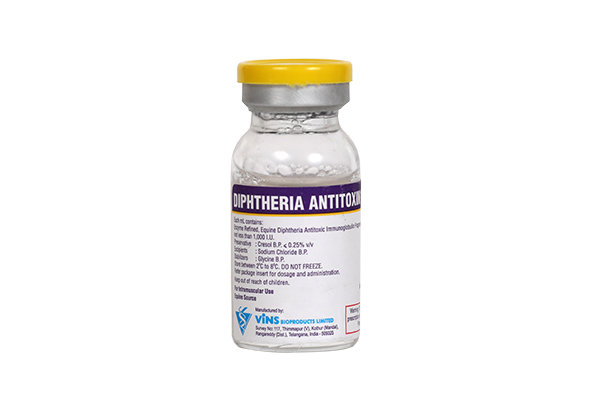
Amidst growing concern over the recent outbreak of diphtheria across several Nigerian states, which has seen over 11,000 suspected cases, the Federal Ministry of Health & Social Welfare (FMOH&SW) has assured the public that immediate vaccination efforts are actively underway.
The executive director of the National Primary Health Care Development Agency (NPHCDA), Dr. Faisal Shuaib addressed journalists in Abuja on Monday, emphasising the government’s steadfast response to the diphtheria outbreaks occurring in various states.
As of September 24, 2023, the reported number of suspected cases stands at 11,587, with 7,202 of these cases confirmed across 105 local government areas (LGAs) in 18 states, including the Federal Capital Territory (FCT).
The majority of confirmed cases, a staggering 6,185, were recorded in Kano, with other states affected including Yobe (640), Katsina (213), Borno (95), Kaduna (16), Jigawa (14), Bauchi (8), Lagos (8), FCT (5), Gombe (5), Osun (3), Sokoto (3), Niger (2), Cross River (1), Enugu (1), Imo (1), Nasarawa (1) and Zamfara (1).
A concerning trend is that the majority of confirmed cases, approximately 73.6 per cent, occurred among children aged 1 to 14 years, with the most significant impact seen in the 5-14 age group. Tragically, the outbreak has led to a total of 453 deaths among confirmed cases, resulting in a case fatality rate (CFR) of 6.3 per cent.
Shuaib disclosed that the outbreak escalated due to the discovery that 80% of confirmed cases were among unvaccinated individuals. In response to this dire situation, the Coordinating Minister of the FMOH&SW, Prof. Muhammad Ali Pate, established a national emergency task team, which Shuaib co-chairs with the director-general of the Nigeria Centre for Disease Control (NCDC). The task force aims to ensure optimal collaboration among all relevant health stakeholders involved in the fight against diphtheria.
Diphtheria is caused by a toxin produced by the bacterium Corynebacterium diphtheriae and is a vaccine-preventable disease included in Nigeria’s childhood immunization schedule. The outbreak has been attributed to a historical gap in vaccination coverage, with only 42 per cent of children under 15 years of age being fully protected against diphtheria.
Since the confirmation of the outbreak, the FMOH&SW, in collaboration with its agencies, has been actively coordinating surveillance and response activities across the nation. These efforts encompass response coordination, surveillance, laboratory investigations, vaccination, case management, and risk communication activities. Key initiatives and actions include:
Establishment of the Diphtheria Emergency Task Team for overall coordination of response activities at both national and sub-national levels.
Activation of a National Diphtheria Emergency Operations Centre (EOC) at NCDC to orchestrate coordinated response efforts.
Deployment of National Rapid Response Teams (NRRT) to affected states to support response activities.
Development of draft National Diphtheria Surveillance and Response guidelines.
Sensitisation and training of clinical and surveillance officers on diphtheria presentation, prevention and surveillance.
Harmonisation of surveillance and laboratory data from across states and labs.
Strengthening of the diphtheria laboratory network to enhance laboratory confirmation of diphtheria.
Capacity building for state-owned public health laboratories in diphtheria diagnosis, including training and skills transfer for sample collection, transportation and laboratory confirmation.
Procurement of diphtheria antitoxin (DAT) for the first time during any diphtheria outbreak, distributed to affected states.
Establishment of diphtheria treatment centres/wards in affected states.
Intensification of routine diphtheria immunisation and reactive vaccination campaigns in 33 local government areas (LGAs) across five states – Bauchi, Katsina, Yobe, Kano and Kaduna.
Mobilisation of vaccines and essential logistics for large-scale outbreak response campaigns in 56 LGAs across seven priority states.
Dissemination of public health advisories on diphtheria through media appearances, engagement with stakeholders and webinar series to raise awareness and bridge knowledge gaps.
Development and dissemination of diphtheria social and behaviour change (SBC) materials for wider public dissemination.
Coordination of diphtheria risk communication and community engagement (RCCE) stakeholders’ meetings at national and sub-national levels.
Sensitisation campaigns target health workers, opinion leaders, religious leaders, schools and community members.
To mitigate the risk of diphtheria, Shuaib offered key recommendations, emphasising that parents should ensure their children are fully vaccinated against diphtheria as per Nigeria’s childhood immunisation schedule. Healthcare workers are urged to maintain a high level of suspicion for diphtheria and adhere to standard infection prevention and control precautions when treating patients. Healthcare workers with a high risk of exposure to diphtheria cases should also be vaccinated against the disease.
Individuals displaying signs and symptoms suggestive of diphtheria should promptly seek medical attention at healthcare facilities or designated diphtheria treatment centres. Close contacts of confirmed cases should be closely monitored and managed in accordance with guidelines.
The most effective protection against diphtheria remains vaccination with the Pentavalent or TD vaccine. The Federal Government of Nigeria provides free, safe, and effective vaccines at all primary healthcare centres across the country, inviting the public to take advantage of ongoing vaccination campaigns.
Shuaib stressed the importance of avoiding rumour-mongering and encouraged the sharing of only verified information from trusted sources such as the FMOH&SW, NCDC, NPHCDA, states’ ministries of Health, WHO, UNICEF and other reputable organisations.

